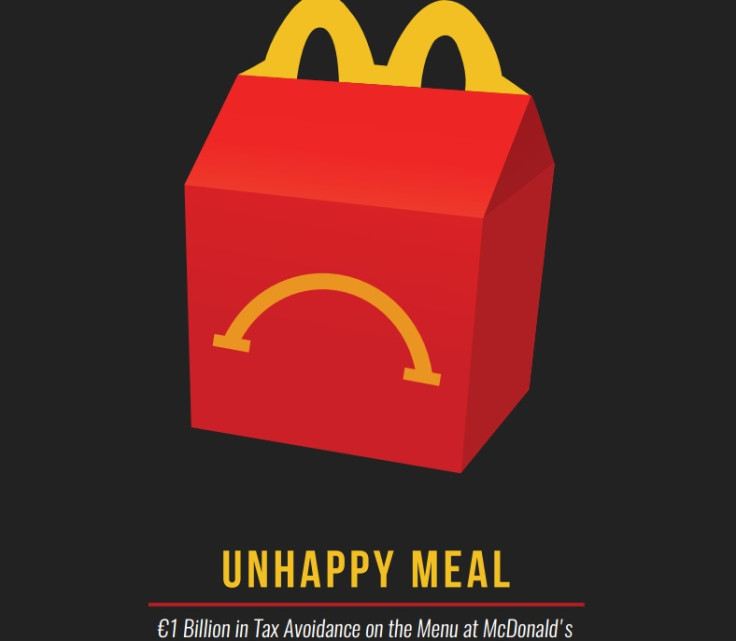Unhappy meal: Here is how McDonald's allegedly dodged €1bn in taxes

A report by a coalition of European and American trade unions has revealed how fast-food chain McDonald's dodged taxes in Europe between 2009 and 2013.
The company has been accused of dodging taxes in Europe to the tune of about €1bn (£730m, $1.13bn) during the five-year period via its complex tax structure that enabled the firm to draw revenue away from Europe and its major markets.
The report from charity group War on Want titled, Unhappy Meal, €1bn in Tax Avoidance on the Menu at Mcdonald's, said the company paid a total of €16m in tax on royalties of €3.7bn for a period of five years. The report is claimed to be based on data drawn from the financial accounts of the company and its subsidiaries as well as press and research reports.
After opening its first European outlet in the Netherlands in 1971, McDonald's has grown to become the largest fast food company in Europe, with 7,850 stores and €20.3bn in system-wide sales in 2013. The European division accounts for about 40% of the company's 2013 operating income.
The report accuses the company of restructuring its business in 2009 primarily to extract billions of dollars in royalties from European operations.
As part of the restructuring, McDonald's established a Luxembourg-based intellectual property holding subsidiary named McD Europe Franchising Sàrl. In addition, it shifted its European headquarters from London to Geneva for tax purposes.


"As a result, McDonald's engaged in aggressive and potentially abusive optimisation of its structure which has led to the avoidance of significant amounts of tax across the continent," the report reads.
The accusation over tax dodging comes in addition to the company's bad reputation as an employer. While McDonald's portrays itself as a vital provider of jobs, its workers often experience precarious, low-wage work with little prospect for steady employment or advancement, according to the report.
For example, the vast majority of McDonald's 97,000 workers in the UK are on zero-hours contracts – employment contracts with neither guaranteed hours nor work schedule stability.
"It is shameful to see that a multibillion euro company, that pays low wages to its workforce, still seeks to avoid its responsibility to pay its fair share of much needed taxes to finance public services we all rely on," said Jan Willem Goudriaan, secretary general of European Public Service Unions.
"Rather than supersizing profits and minimizing taxes, McDonald's should change its recipes to ensure that corporate citizenship is at the core of its menu."
The report urges competent authorities at the national and European levels to question the lawfulness of McDonald's tax scheme. It wants the scheme to be included within the scope of the ongoing investigation launched by the European Commission.
Meanwhile, McDonald's said it complies with laws in the countries in which it operates.
"McDonald's complies with applicable laws, including payments of the taxes that are owed in each country in which we operate," Becca Hary, Director of global media relations at McDonald's said in a response sent to IBTimes UK.
"In addition to paying taxes on profits, we pay significant taxes for employee social contributions, property taxes on real estate, and other taxes as required by law.
(The story was updated to include a comment from McDonald's)
© Copyright IBTimes 2025. All rights reserved.






















